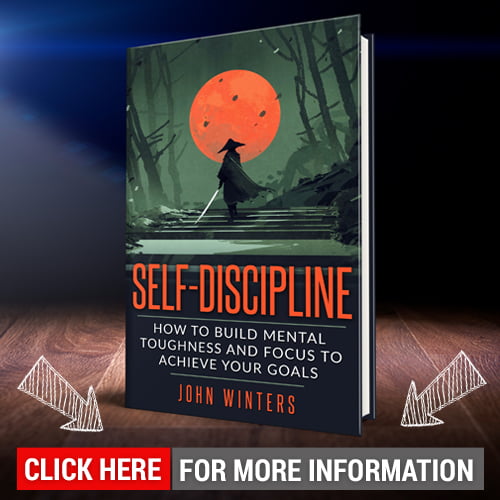Today I'm looking at the key lessons from “Dale Carnegie's How to Win Friends And Influence People in the Digital Age”
Yes, not the original book but the updated version for the “Digital age.”
Some might say, “It's not the original,” but I found this book fun to read and learned a few lessons even after reading the original book titled: “How to Win Friends and Influence People.”
So keep an open mind and see if you can learn something new.

Social skills are something a majority of men don't have.
Even those who think they are good with people end up at dead ends in life, not knowing how they got there.
Social skills are one of the most important parts of building a successful and fulfilled life.
And it's a key part of building power in your own life.
Social skills influence all parts of our lives.
It's important in our businesses, jobs, professions, dating, and relationships.
Unfortunately, most people dont know what they are doing, so their results are mediocre.
The modern world has presented us with plenty of challenges when it comes to relationships.
With so much online interaction, we struggle to find the balance between virtual connections and meaningful human interaction.
Enter Dale Carnegie's How to Win Friends And Influence People in the Digital Age – a book that promises to bridge the bridge between virtual and reality using the same lessons that have been taught for generations.
After diving into this book, I can definitely say I'm better versed in the art (or science!) of connecting with others.
Let's take a closer look at what this book has to offer!
The key lessons from “How to Win Friends & Influence People in the Digital Age” By Dale Carnegie

Part 1 – Essentials of Engagement
1.Bury Your Boomerangs
In “Bury Your Boomerangs”, the first chapter from Dale Carnegie's book “How to Win Friends & Influence People in the Digital Age”, he warns us of the pitfalls of online communication.
He suggests that, just as you'd never simply throw a boomerang out into the world and expect it to come right back, neither should we put our thoughts out into the digital world without considering the potential reverberations it might bring.
Carnegie argues that all interactions have consequences and reminds us that with great power comes great responsibility, the responsibility to think twice before sending that angry tweet or scathing email.
It's easy to forget that online communications are not as anonymous as they may seem, and Carnegie artfully reminds us of this with his boomerang metaphor – because when it comes to digital communication, there is no such thing as a take-back!
2. Affirm What’s Good
Affirm What’s Good may sound like a ‘Kumbaya’ type chapter, but in actuality, it is quite the opposite!
Through Affirm What’s Good, Dale Carnegie explains how highlighting the positive not only encourages high-quality work and creates great relationships but also often reveals creative and beneficial solutions.
In short, Affirming What’s Good is not just a fluffy concept – it’s a tried and true way to ensure success.
Make sure you give “Affirm What’s Good” a read before writing off the book How to Win Friends And Influence People in the Digital Age by Dale Carnegie; you might be pleasantly surprised by its contents.
3. Connect with Core Desires
The chapter called “Connect with Core Desires” provides an entertaining yet informative look into how a person can use modern means of communication to influence and persuade others.
As Carnegie points out, we may not be able to sway everyone, but by getting in touch with people's core desires, we can improve the impact of our words.
From understanding what motivates other individuals to utilize digital platforms that link us together, this chapter gives great insight into how people charm their way into someone else's heart through strategic connection.
Indeed, there is a lot of wisdom in Carnegie's words- follow his advice and use modern methods to become a master of your digital relationships!
Part 2 – Six Ways To Make A Lasting Impression

1. Take Interest in Others’ Interests
“Take Interest in Others' Interests” is an essential chapter of Dale Carnegie's book, “How to Win Friends And Influence People in the Digital Age”.
This short but significant statement illustrates that forging meaningful connections with those around us doesn't have to be so difficult.
At its core, gaining someone's trust and respect involves taking a genuine interest in their lives and considering what matters most to them.
Of course, it stands to reason that as social creatures, genuine interest and consideration should come naturally!
As the old adage states: ‘show me who your friends are, and I will tell you who you are’.
With this mindset, the possibilities for growing closer to people are limitless!
2. Smile
From Dale Carnegie's signature phrase in the book “How to Win Friends And Influence People in the Digital Age” – “A smile back is a sure sign that our connection has been welcomed.”
In his chapter ‘Smile', Carnegie encourages the reader to not just share an external display of their emotions, but also embrace positive behavior towards others.
A friendly smile is an essential tool for initiating conversations with any digital interaction and plays an important role in strengthening relationships.
After all, a smile is capable of making anyone feel accepted and understood.
Thus, Carnegie’s chapter serves as a reminder of how far one can stretch kindness through simple facial expressions.
The power of a single genuine smile should never be underestimated!
3. Reign with Names
In the chapter “Reign with Names” readers get insight into the importance of respecting names and not just repeating them.
From older generations who may have an aversion to technology to younger generations who may come across as impolite online, this chapter provides practical tips on how digital communication can be used to make a good impression.
Carnegie notes that while digital communication often falls short in conveying tone and emotion, using your listeners' names is one powerful way of connecting with people on a deeper level and leaving a positive impression.
By getting creative with using names online, you rule those conversations like the benevolent monarch you are!
4. Listen Longer
Dale Carnegie offers some sage advice in his chapter “Listen Longer.”
He urges readers to fully apply themselves to paying attention when engaging others online, a skill that is admittedly more challenging than with face-to-face communication.
But beyond just putting down your phone and focusing on your conversation partner, he also suggests taking notes.
He suggests actively listening by engaging in conversations through questions and comments, being conscientious of cultural differences while keeping an open mind, and, most importantly, bringing out empathy from within.
It’s impressive how relevant his tips remain even amid the many technological advances we have today; those who heed them will undoubtedly stand out for their thoughtfulness and truly make meaningful connections with their peers – a win-win situation if ever there was one!
5. Discuss What Matters to Them
In this chapter, Carnegie emphasizes the importance of understanding your audience and approaching them in a way that resonates with what matters most to them.
This chapter outlines how to discern your audience's needs and wants, recognize their values, and use this information to connect with them on a more meaningful level.
It lays out creative methods for bridging differing perspectives, finding common ground among seemingly disparate groups of people, and coming to mutually beneficial solutions.
By utilizing this advice from Carnegie's timeless book, you'll be sure to make an impression worthy of recognition.
6. Leave Others a Little Better
In “Leave Others a Little Better”, Dale Carnegie gives readers a unique perspective on how technology and digital advancements can enhance human effort naturally.
Whether it’s through building “lasting relationships with others” or giving back, Carnegie shows us how simple acts create stronger ties between us and can ripple outwards in meaningful ways.
He emphasizes that we can increasingly use social media, networking tools and other technology to take an active role in making sure the world has more joy and connection than before.
Because let's face it – if you really want to be popular online, it helps to leave people better off than they were when they connected with you!
Part 3 – How to Merit and Maintain Others’ Trust

1. Avoid Arguments
Avoiding arguments isn't an easy thing to do, especially in the digital age when passionate debate can rage on for hours.
Dale Carnegie offers sound advice on handling difficult conversations.
He emphasizes that it is better to remain courteous and respectful rather than get drawn into a fruitless exchange of opinions and feelings.
Carnegie suggests not taking arguments seriously, as they can be quite draining, while at the same time staying honest with one's own beliefs and reacting calmly to disagreements with others.
Though it may take some practice, mastering this skill can help one avoid many pointless disagreements and make communication easier – both online and offline!
2. Never Say, “You’re Wrong”
Reading the chapter titled “Never Say, ‘You're Wrong'” is a must if you want to be adept at communicating with other people.
Contrary to popular opinion, disagreements don't always have to descend into an all-out war of words.
Instead, you can learn how to express yourself clearly yet politely.
This way, everyone can freely exchange ideas without having their opinions disregarded or their feelings hurt.
Aside from ensuring that your relationship remains amicable, this chapter teaches you how to make sure your point sticks while still leaving Twitter trolls scurrying back down whatever hole they crawled out of.
3. Admit Faults Quickly and Emphatically
In the chapter “Never Say, “ Admit Faults Quickly and Emphatically,” Dale Carnegie talks about the power of admitting mistakes.
Making a mistake can be really nerve-wracking, but it's actually not such a bad thing – we're all human, after all!
With that said, Carnegie points out that it can really help to be open and honest with your mistakes in order to become even better.
It takes resilience and courage to own up to your failures, but ultimately doing so could benefit you immensely – especially if you apologize sincerely and make good for future endeavors.
All in all, this chapter is a great reminder that admitting our faults leads to growth, both personally and professionally.
4. Begin in a Friendly Way
In the chapter “Begin in a Friendly Way,” Carnegie outlines some ways to approach people that you'd like to build relationships with.
It's really quite simple—the key is simply being friendly towards them and putting your best foot forward.
As Carnegie himself says, “Smile, be genuinely interested in what they have to say, and ask questions that lead to unique connections that can't be relayed online”.
If you want to win friends and influence people digitally, then it pays dividends to begin your interactions on the right foot by following these simple tips.
Doing so will help ensure strong relationships are built from the start and help create positive vibes for the rest of your conversations.
5. Access Affinity
Dale Carnegie's ‘How to Win Friends And Influence People in the Digital Age' is as relevant now as it was over eighty years ago.
In the chapter ‘Access Affinity’, Carnegie gives valuable advice on how making connections with others is more important than ever in the digital age.
He explains that by utilizing online forums and social media, we are able to stay connected with people both near and far.
To get the most out of these platforms, he advises investing time into personalizing one's profile and getting proactive through sharing interesting articles or asking thoughtful questions.
He suggests that it's also a good idea to build meaningful relationships across the globe.
While tools like artificial intelligence can help automate certain tasks online, Carnegie shows us why making real human connections still holds special importance.
6. Surrender the Credit
“Surrender the Credit” is a chapter that tells us that it's far better to be generous and give recognition to others for their accomplishments.
After all, isn't it much more pleasant to be on the receiving end of praise and thanks than trying to receive acknowledgment which never arrives?
It can also be said that humility is always attractive, and whenever you surrender credit instead of being stubbornly vague or claiming it as your own, everyone wins!
7. Engage with Empathy
Dale Carnegie's covers an indispensable life skill in this book: empathy.
In this chapter, Carnegie delves into the power of empathy and encourages readers to connect with others on a more profound level.
He explains that when we actively practice showing compassion in our everyday conversations– whether online or offline –it's easier for us to effectively persuade and build strong relationships with those around us.
Of course, engaging with empathy isn't always easy, but if readers listen carefully and avoid speaking over others, the rewards can be infinite and invaluable!
8. Appeal to Noble Motives
In “Appeal to Noble Motives”, Dale Carnegie explains how to use one's noble motives to influence people in the digital age.
His main point? Appeal to a person's higher self.
What does this mean?
It means fulfilling people’s need for purpose and reward by showing them that their efforts can achieve a greater good.
If you use your own positive energy to help someone fulfill their ambitions, they are more likely to collaborate with you in the future.
When we seek out mutual betterment instead of personal gain, everybody wins!
In short, appeal to your peers' noble motives and watch as relationships around you blossom!
Being a digital age superstar isn't all about amassing hundreds of followers on Instagram and getting your tweets to go viral.
In the chapter “Share Your Journey” from Dale Carnegie's book “How to Win Friends & Influence People in the Digital Age”, he suggests that modern networks should be used not only for sharing success but also for sharing failure, disappointment, and setbacks.
It’s inspiring to know we’re all just trudging along, doing our best, and still having a laugh or two when things don’t quite go as planned.
Carnegie encourages us to share our journey, whatever that may be, with honesty and humor – sure to leave you with plenty of likes! (Manage this one wisely,dont show all your cards)
10. Throw Down a Challenge
In the chapter “Throw Down a Challenge,” readers are provided with valuable insight into why taking risks and facing challenges is so important.
Through an engaging array of anecdotes and examples, the author shows us how taking on risks can help to create opportunities for personal growth that would otherwise be unattainable.
In short, when you throw down a challenge, irreplaceable rewards often follow!
The beauty of it is that if we are not afraid to accept those changes, embracing them rather than running away from them, fear can turn into courage and stagnation into progress – proof positive that taking a risk can never fail to pay dividends.
Part 4 – How to Lead Change Without Resistance or Resentment

1. Begin on a Positive Note
If you want to make connections that will last a lifetime and build trust and loyalty, look no further – Carnegie has all the answers!
As the title suggests, starting with a positive attitude is essential for embarking on any journey.
Be polite, friendly, and upbeat to put your best foot forward from the get-go.
After all, first impressions are everything – if you start off on the wrong foot, you may be sorry later on!
Always start a conversation with a smile and an engaging question or comment to leave individuals feeling special.
2. Acknowledge Your Baggage
In this chapter Dale Carnegie offers a brilliant suggestion to rid oneself of unnecessary stress:
Acknowledge Your Baggage.
By taking the time to reflect on our situations, analyze our anxieties and recognize our struggles, we can begin a flow of positive energies instead of damaging ourselves further with negative thought patterns.
This chapter helps readers realize that it is often impossible to progress without first unloading and setting aside all those heavy burdens we carry.
The power of nostalgia can be overwhelming, but by gently accepting grief instead of suppressing it, an individual will find peace and then be able to open their doors for welcomed growth.
3. Call Out Mistakes Quietly
In the chapter “Call Out Mistakes Quietly” from Dale Carnegie's book “How to Win Friends & Influence People in the Digital Age”, he offers some sage advice.
With a smile and a nod, he reminds us of one of life's greatest lessons – discretion is key.
The world has become more connected than ever before, and we must proceed with caution when addressing errors in digital communications.
Not only would it be wise to frame criticism as an offering of advice, but also to phrase it positively instead of pointing out what's wrong.
After all, with great digital power comes great responsibility!
4. Ask Questions Instead of Giving Direct Orders
The chapter entitled “Ask Questions Instead of Giving Direct Orders” is particularly pertinent.
As Carnegie posits, commanding someone with orders often perpetuates a power dynamic that can be off-putting and ineffective, whereas dialoguing through questions can foster cooperation and positive energy.
In our modern context, this type of communication is paramount for developing relationships that yield mutual understanding and respect – it certainly beats barking orders at someone from behind your computer screen!
With its wise advice, Carnegie's book provides invaluable tips for managing healthy interactions during this rapidly-changing digital age.
5. Mitigate Fault
Dale Carnegie really hits the nail on the head with this chapter on mitigating fault.
Carnegie tells us that we should look to ourselves first when things go wrong, as opposed to blaming or shaming others.
This can be a difficult pill to swallow in the heat of the moment, but Carnegie rightly advises us that while it is important to figure out why something happened and rectify it, we shouldn't put ourselves in situations where fault-finding is likely needed.
After all, isn't a friend- and people-winning much easier when everyone gets along?
6. Magnify Improvement
In his chapter “Magnify Improvement,” Dale Carnegie emphasizes the importance of recognizing and appreciating even the slightest progress.
After all, acknowledging individual successes and providing praise can create an incredibly positive atmosphere.
He reminds readers that it's through these incremental improvements that transformative change is eventually achieved.
Acknowledging each small improvement closely follows the famous phrase ‘Rome wasn't built in a day.'
His sense of humor shines through when he says, “If you don't magnify your friends' continually improving improvements with enthusiasm and appreciation, then who will?”
It's never too late to start celebrating successes and goals, big or small!
7. Give Others a Fine Reputation to Live Up To
The chapter “Give Others a Fine Reputation to Live Up To” from Dale Carnegie's book “How to Win Friends & Influence People in the Digital Age” demonstrates that recognition is key when it comes to developing positive relationships with others.
Aside from bestowing compliments without strings attached, Dale Carnegie also recommends recognizing people and their contributions in meaningful ways.
This timeless advice certainly applies today as we attempt to build solidarity in the digital world.
After all, while a ‘like' may suffice on social media, tangible rewards and acts of recognition go a long way towards improving one's reputation—even if you aren't always looking for one.
So don't forget the secret phrase: A good impression goes a long way!
8. Stay Connected on Common Ground
In the chapter “Stay Connected on Common Ground,” Carnegie examines how technology has revolutionized social connections.
Carnegie tries to show how, despite helpful efficiency and exciting new technological advancements, it is still important and beneficial to hold personal one-on-one conversations with people.
By emphasizing that virtual communication can be impersonal, he advises readers to strive for relationships built on common ground rather than through digital devices alone.
With this message and more, Carnegie offers a refreshing take on the potential risks of constantly being immersed in modern technology.

Conclusion
All in all, “How to Win Friends & Influence People in the Digital Age” is a winner!
This updated version of Dale Carnegie's classic work proves that effective communication isn't an antiquated concept.
Whether it's via Facebook, Twitter or email, Carnegie's timeless tips can be applied across many channels.
Although some may find the traditional approach to ‘winning friends’ outdated if not slightly creepy, there are plenty of knowledgeable guidance and example scenarios included in the book to paint a clear picture.
Perhaps what will be most appealing, though, is everyone can take something away from it to apply either personally or professionally – making this a must-read for this digital age we live in.




